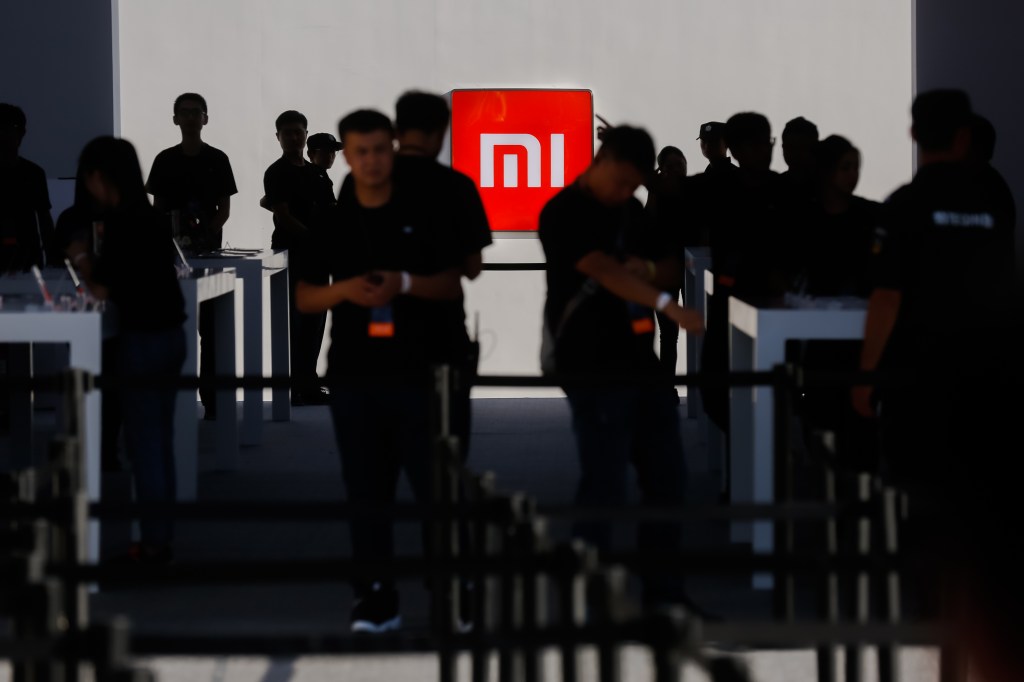Xiaomi, the world’s fourth largest smartphone vendor, on Wednesday shared its earnings figures for the quarter that ended in September. While the results fell largely in line with analysts’ expectations, a drastic drop in the company’s growth underscores some of the struggles that handset makers are facing as they shift to services to make up for dwindling smartphone purchases globally.
The Chinese electronics firm posted Q3 revenue of 53.7 billion yuan, or $7.65 billion, up 3.3% from 51.95 billion yuan ($7.39 billion) revenue it reported in Q2 and 5.5% rise since Q3 2018.
This is largely in line with analysts’ estimated revenue of 53.74 billion yuan, per Refinitiv figures, but growth is slowing. As a point of comparison, in Q2, Xiaomi reported QoQ growth of 18.7% and YoY of 14.8%.
Xiaomi said its adjusted profit in the aforementioned quarter was 3.5 billion yuan ($500 million), up from about 2.5 billion yuan a year ago. Gross profit during the period was 8.2 billion yuan ($1.17 billion), up 25.2% year-over-year.
The company said its smartphone business revenue during Q3 stood at 32.3 billion yuan ($4.6 billion), down 7.8% year-over-year. The company, which shipped 32.1 million smartphone units during the period, blamed “downturn” in China’s smartphone market for the decline.
Marketing research firm Canalys reported this month that China’s smartphone market shrank by 3% during Q3. Despite the slowdown, Xiaomi said its gross profit margin of smartphones segment had reached 9% — up from 8.1% and 3.3% in the previous quarters.
Other than Huawei, which leads the handsets market in China, every other smartphone vendor has suffered a drop in their shipment volumes in the country, according to research firm Counterpoint.
But for Xiaomi, this should technically not be a problem. Long before the company listed publicly last year, it has been boasting about its business model: how it makes little money from hardware and more and more from delivering ads and selling internet services.
That internet services business is not growing fast enough, however, to be an engine for the overall company. It grew by 12.3% year-on-year to 5.3 billion yuan ($750 million) and 15% since last quarter. Either way, it accounts for only a fraction of smartphone business’ contribution to the bottomline.
Furthermore, parts of that business are facing some other challenges: Advertisement revenue has been falling for more than two consecutive quarters, the company says.
Xiaomi said two years ago that it will only ever make 5% profit from its hardware, something its executives told TechCrunch has been engraved in the company’s “constitution.” But the slow shift to making money off of internet services, while making less money from selling hardware, is one of the chief reasons why the company had an underwhelming IPO.
Meanwhile, the user base of Xiaomi’s Android-based MIUI software is growing. It had 292 million monthly active users as of September this year, up from 278.7 in June.
In more promising signs, Xiaomi said its smart TV and Mi Box platforms had more than 3.2 million paid subscribers and revenue from its fintech business, a territory it entered only in recent quarters, had already reached 1 billion yuan ($140 million).
But it’s hardware that continues to make up the biggest proportion of its revenues. The company, which is increasingly moving its gadgets and services beyond Chinese shores, said revenue from its international business grew 17.2 year-over-year to 26.1 billion yuan ($3.7 billion) in the third quarter — accounting for 48.7% of total revenue.
Much of Xiaomi’s international success could be attributed to its dominance in India, the world’s second largest smartphone market. For last nine consecutive quarters, Xiaomi has been the top smartphone vendor in India, one of the rare markets where the appetite for handsets continues to grow. Of the 32 million smartphone units the company shipped in Q3, more than 12 million of those arrived in India, according to Counterpoint.
In a statement, Xiaomi founder and chairman Lei Jun said the company is hopeful that it will be able to further grow its revenues when 5G devices start to get traction. The company has plans to launch at least 10 5G-enabled smartphone models next year, he said. No word from him on what the company intends to do about its services ecosystem.

